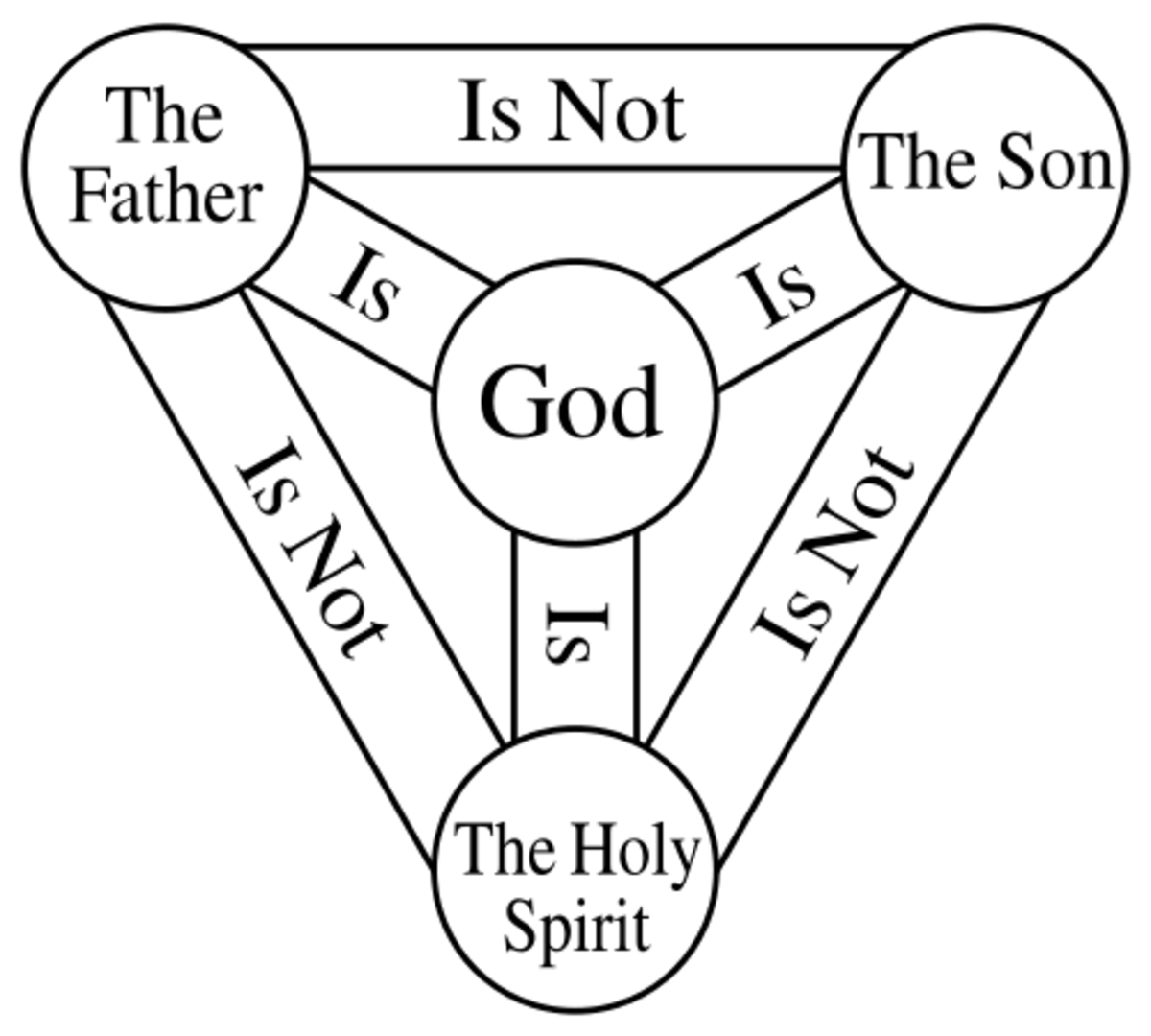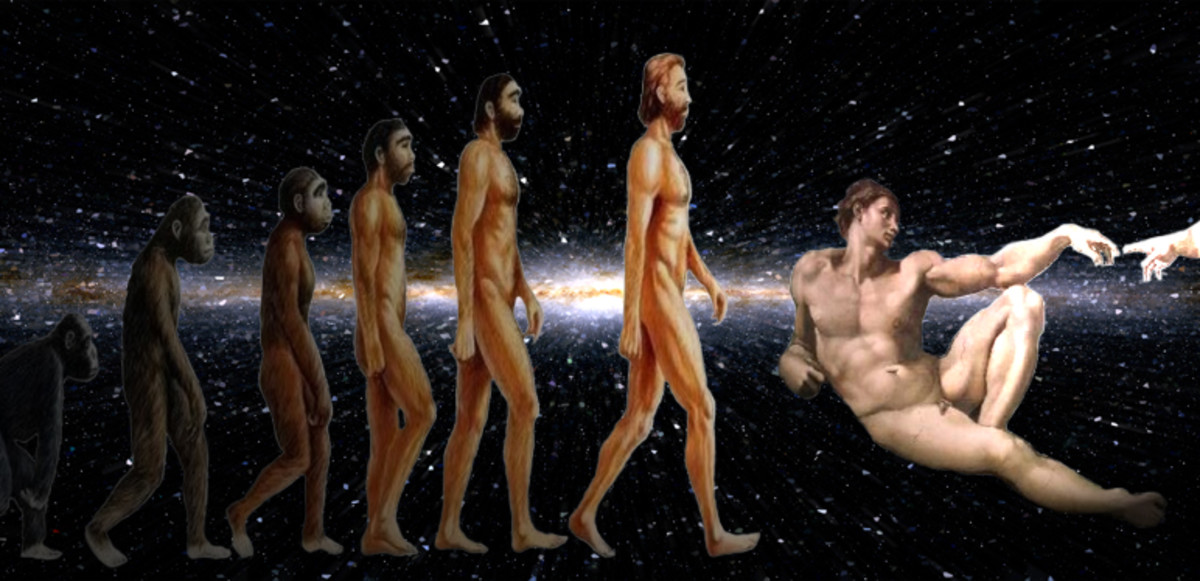Does Hebrews 6:4-9 Teach Loss of Salvation. Calvinism vs Arminianism

Calvinism vs Arminianism
Hebrews 6:4-9 is a passage that is very confusing to most believers. There is not much teaching on this passage, apparently because of how confusing it seems. This passage can be understood, however, by carefully “dividing the Word of truth” (II Tim. 2:15). This article is meant to look at this passage in relation to two major “isms” in the Christian world Calvinism and Arminianism.
Calvinism and Arminianism are systems of doctrine built in reaction to each other. Both of these doctrinal standpoints has some truth and some error. The truth lies between the two, namely in the Word of God.
Heb. 6:4 “For it is impossible for those who were once enlightened, and have tasted of the heavenly gift, and were made partakers of the Holy Ghost, 5 And have tasted the good word of God, and the powers of the world to come, 6 If they shall fall away, to renew them again unto repentance; seeing they crucify to themselves the Son of God afresh, and put him to an open shame. 7 For the earth which drinketh in the rain that cometh oft upon it, and bringeth forth herbs meet for them by whom it is dressed, receiveth blessing from God: 8 But that which beareth thorns and briers is rejected, and is nigh unto cursing; whose end is to be burned. 9 But, beloved, we are persuaded better things of you, and things that accompany salvation, though we thus speak.”
Is the Bible clear on the question eternal security and losing salvation?

Does Calvinism properly understand the Sovereignty of God?
Calvinism, emphasizes the sovereignty of God. Of course, God is sovereign. However, in the effort to counteract the false doctrine that says you can lose your salvation, they do not consider the Bible’s full teaching on God’s sovereignty. The Calvinist problem with sovereignty is that it does not fully apply the condescension of God.
The condescension of Christ is the doctrine that Christ gave up certain rights (that He had as God) to come and die for us. Another way to put it is that Jesus humbled Himself. He became man, then a servant to the Father and to man, and then to die for us. Jesus was still God in nature the whole time. But He voluntarily limited His own rights for a time.
The Bible shows us that God the Father limits Himself as well. In Phil. 2:9, we see God lift up Jesus above Himself. “Wherefore God also hath highly exalted him, and given him a name which is above every name.” God has lifted Jesus’s name above His own in Ps. 138:2, “I will worship toward thy holy temple, and praise thy name for thy lovingkindness and for thy truth: for thou hast magnified thy word above all thy name.” John 1:1 tells us that Jesus is the Word. God has lifted up Jesus (the Word) above all His holy name (JHVH). This is a humility of the Father before the Son.
Similarly, the Father has limited His own sovereignty to give man an individual choice. Just like Christ condescended to become man by giving up His rights to Godhood, so the Father also condescended to give man the ability to choose to say “no” to God. Jos 24:15 “And if it seem evil unto you to serve the LORD, choose you this day whom ye will serve; whether the gods which your fathers served that were on the other side of the flood, or the gods of the Amorites, in whose land ye dwell: but as for me and my house, we will serve the LORD.” If God did not actually empower us to make a valid choice, His command to choose would be empty and vain. God’s words are never vain.
Can God still be completely sovereign and give us the ability to say "no" to Him.

People who think salvation can be lost, don't understand salvation's covenant.
A problem with Arminianism is that it lifts up the individual choice of a person to such a high degree that it makes man’s choice more powerful than God’s covenant-promises about eternal security. Once a person receives the gift of eternal life, they enter into covenant with God. It is not that the person no longer has a choice. In deed, Christians often choose to resist God’s grace after salvation and backslide. But the only thing that can nullify a life long covenant is death. God will never die. And Jesus said in John 11:26, “And whosoever liveth and believeth in me shall never die. Believest thou this?” So, once the covenant relationship is entered into, there is no nullifying of the salvation covenant, no matter what choices to are made.
Arminianism then protests, “Then we can all live in sin and it will not matter?” Certainly not. The person who could have chosen to reject Christ and the work of the Holy Spirit before salvation, is not the same person that has been indwelt with the Holy Spirit of God. The Spirit convicts, and the Father chastises the son He adopts. A truly saved person does not have the same desire to sin like the unsaved person does.

What do people fall away from if not salvation? The Place of Repentance.
One of the problem texts for both sides of this debate is Hebrews 6:4-9. The problem is that this passage looks like it is talking about loss of salvation. If this were proper interpretation, that would obviously be a problem for Calvinist doctrine, and would contradict other Scriptures. Calvinist doctrine rightly teaches that a saved person cannot lose his salvation. Nor can a truly saved person choose not to be saved anymore. This passage, if it did mean loss of salvation, would also be a problem for the Armenian side, and would still contradict other Scriptures. It would mean that if a person did lose his salvation, he could never get it back. It would negate I John 1:9. In the writer’s experience, most conditional security people teach that if someone loses his salvation, he can always repent and in a sense get it back.
The answer for both sides is that this passage does not speak about salvation, until verse number 9. Rather, it refers to a place of repentance before salvation. Christians mistakenly understand this place of repentance to mean the same thing as salvation. However, the Bible teaches here in Hebrews 6 (as well as in other passages) that the place of repentance is somewhere short of salvation.
For example, the Bible teaches that Esau sought the place of repentance. Hebrews 12:17 For ye know how that afterward, when he would have inherited the blessing, he was rejected: for he found no place of repentance, though he sought it carefully with tears. While the text here is specifically talking about the history with Esau and Jacob, the writer of Hebrews is applying it to a certain spiritual condition. That condition is when a person knows they need to trust in God but in stead turns away from God. Then the place of repentance is closed to them.

How can an unsaved person once be enlightened?
Looking at Hebrews 4:6-9 will help, to understand what this place of repentance means. Verse 4 starts a sentence that is not finished until verse number 6. There are several phrases in between verse number four and six. To understand the simple thought, please omit those phrases for one moment.
Verse 4 starts, “For it is impossible for those who were once enlightened . . . 6 If they shall fall away, to renew them again unto repentance.” Now, it is easy for Bible students to misunderstand this “enlightened” phrase. Many assume it means the guidance of the Spirit that a Christian receives after salvation. However, verse number six states that the place they are falling away from is, in fact, a place of repentance rather than salvation. This is further confirmed by verse number 9. “But, beloved, we are persuaded better things of you, and things that accompany salvation, though we thus speak.” The phrase, “shall fall away” is parapipto, which means (from 3844 and 4098 in Strong’s) to fall aside, i.e. (figuratively) to apostatize, fall away.
Hebrews 1-2 shows Christ is greater than angels. In chapter 3, He is greater than Moses. In 4, He is greater than the Sabbath. In 5, He is greater than the Aaronic high priest. Then in Hebrews 6:1-3, Paul (assuming he was the writer) indicates that he wants to turn a corner in the book of Hebrews and move past the basic issues of leading up to salvation, namely “the foundation of repentance from dead works, and of faith toward God.” Then in verse number 9, he says that he is now going on to talk about salvation. So, Paul is indicating that what he spoke about in verses 4-8 are actually something short of salvation. This place of repentance is, arguably, a border between being unsaved and saved. This is the “place of repentance,” spoken of in Hebrews 12:17. It could be considered the doorstep to salvation.
In Ephesians 2:1, Paul tells us that man is dead in trespasses and sins. Man’s spirit is dead before God. Death is separation. When man committed sin, it separated him from a sinless God. Man’s dead spirit cannot hear God’s call to salvation without God’s empowerment. It cannot accept salvation without His empowerment. He cannot even know that he is a sinner without God’s empowerment. The only way that man is able to know his situation is through the Holy Spirit’s grace. This is what Heb. 6 is referring to as this place of repentance. These are the things that God does for men at the doorstep of salvation so that any that will can enter in to His eternal life.
It is important to take each phrase between verse 4 and 6 and examine them individually. The first is “has once been and enlightened.” Since this phrase is not speaking about salvation (vs. 9), the question must be asked, “When does an unsaved person become enlightened before salvation?” The answer is obvious. It is speaking of when the Holy Spirit of God convicts a person and makes them see their sin. Notice the word is “once.” They are not given the eternal enlightenment of salvation, but just a taste, so to speak.
The next question is, “To whom does this light appear?” John 1:9 says the Jesus is light and He is the light that lights every man that comes into this world. This light is a part of and indivisible from the grace that brings salvation to man. Obviously, not everyone receives the light, just like not everyone receives the grace unto salvation. But this light, at the doorstep of repentance, does appear to all men as John 1:9 states. Titus 2:11 reiterates this truth. “For the grace of God that bringeth salvation hath appeared to all men.” As this place of repentance is like the doorstep of salvation, this enlightenment seems like the “porch” light. And how powerful a light it is that it should shine for the whole world to see!

How can an unsaved person taste of the heavenly gift?
The second phrase in Hebrews 6:4 is, “[A]nd have tasted of the heavenly gift.” Notice, that the word here is “tasted.” The heavenly gift is obviously salvation. However, it says that they have tasted of salvation. There is a lot of difference between tasting a meal and eating a meal. In the same way, no one can even know they need to be saved without the Holy Spirit’s touch. At the point of repentance, the Holy Spirit empowers a person with just a touch or a taste of what salvation and forgiveness means. Otherwise, we could not even be drawn to salvation in our dead spiritual state.
This event of the Holy Spirit's touch or taste could be likened to someone who receives a life-giving electrical shock of a defibrillator. The defibrillator can restart a heart that has stopped. When it is stopped, the electrical signals of the person’s natural body are not working. They are dead. An outside force of electricity is used to restart the heart.
Another example is that of a car that has no alternator, and the battery is dead. The car must have electricity from an outside source given to the car in order for the car’s engine to turn over. One car can charge up the battery, and the car without the alternator can run for a while. But it will die as soon as the battery is depleted. As long as the jumper cables are hooked up to the no-alternator car, the car can run off the other car’s electricity. This is like what happens to us when we are united with the Holy Spirit of God at salvation. He continues to give us the electricity, spiritually speaking, for us to keep living in the spiritual life forever. However, the person who receives the electricity from the jump start and then unhooks the jumper cables will not stay running on their own power. That is because they do not have an alternator that is producing its own power. This is what the sinner who refuses the indwelling for the Spirit does. He takes the touch of grace that empowers him to know his need for salvation, but refuses to unite with the Spirit for eternal life. He turns away and is lost.
Spiritually speaking, as our spirit is dead in sins, the Holy Spirit gives a taste of His heavenly gift to the unsaved person so that they can know that they even need to be saved. In giving us a taste of the salvation, the Holy Spirit is empowering our ability to respond to Him and accept it. When one accepts salvation, he moves through the door, off the doorstep of repentance. If he refuses the taste of the heavenly gift, he has turned his back on repentance.

How can an unsaved person be a partaker of the Holy Ghost?
The third phrase of Hebrews 6:4 is perhaps the most difficult, “[A]nd were made partakers of the Holy Ghost.” Fundamental Bible teachers have rightly taught that at the moment of salvation, the Holy Spirit comes into our spirits and indwells us forever. So, when we see this phrase, “partakers of the Holy Ghost,” it sounds very much like salvation. If that were what it meant, that would mean we could lose our eternal life. If we can lose it, how long was the eternal life. But remember, verse 9 tells us that the former verses were not talking about salvation. So, how does an unsaved person become a partaker of the Holy Ghost before he is saved?
The Holy Spirit of God is also called the Spirit of Grace (Heb. 10:29). In order for anyone to be saved, God has to give the grace unto salvation to the unsaved person. When a person is at the place of repentance, the grace that the person receives is not separate from the Holy Spirit Himself. In some small way that person at the place of repentance has become a partaker of the Holy Spirit. That is because the sinner has in some way partaken of the grace unto salvation.
Arguably, this phrase can not mean anything else. If it means salvation, then the rest of the Scripture that guarantees eternal security is in error. But the Scripture on covenant salvation stands. All Scripture can be brought into harmony with the others if we understand them correctly. Hebrews 6 makes it evident that a person at the place of repentance (though not yet saved) does somehow partake of the Holy Spirit by experiencing the Grace unto salvation.

How do unsaved people taste the good Word of God?
The next phrase in verse number 5 is, “And have tasted the good word of God. . .” The idea of eating God’s Word is a an idea that occurs many times in the Bible. Prophets were told to eat the book the God gave them. Moses likened the mana to the Word of God. He said that the reason why God gave the manna was so that man would know that he must feed off of the Word of God spiritually. But notice that this phrase in verse 5 does not say that the person has eaten the Word. Again, it says “tasted.” The grace unto salvation allows an unsaved person to know how good the Word of God is. God allows them to spiritually taste it the Word. Now if the person goes through the door of salvation, then the Word of God can dwell in the Christian’s life richly (Col 3:16). But if the person turns away from the place of repentance, not only are they not saved, but they are now responsible for knowing the truth and rejecting it.
Just like the term “enlightened” refers to Jesus’s work in the world, and just like it says that people are made partakers of the Holy Spirit at the moment of conviction, so they have tasted of the Word of God. Here, it is arguable that the Word of God means more than just the Bible. It also means that they have tasted of the goodness of Jesus who is the Word of God. This is supported in Heb. 6:6 where it says that the person who turns from repentance crucifies the Son of God afresh.
Hebrews 6:1-8 is Paul’s version or explanation of the unpardonable sin. Jesus calls the unpardonable sin the blasphemy of the Holy Spirit. Then the Holy Spirit, through Paul says that the blasphemy that is unpardonable is against Jesus. This is appropriate for the Holy Spirit to emphasize Jesus here. After all, Jesus said that the Spirit would do this (Jn. 16:13). Yet notice that Heb. 6 takes into account both the blasphemy against the Holy Spirit (partakers of the Holy Ghost) and against Jesus as well (tasting the good Word, putting Son of God to open shame).

How do the unsaved taste of the world to come?
The last phrase is, “[A]nd the powers of the world to come.” Apparently, God is referring to all the joys of heaven in this phrase. When we are convicted to salvation, God gives us a taste of heaven. If a person walks through the door of repentance, they receive eternal life presently. This is evidenced many times in the Bible, but look at two verses just to demonstrate.
Eph. 2:5 “Even when we were dead in sins, hath quickened us together with Christ, (by grace ye are saved;) 6 And hath raised us up together, and made us sit together in heavenly places in Christ Jesus:” Notice that it does not say that we will be made to sit in heavenly place. It says that the saved already are there. Physically, we are not, but spiritually we are. That same spirit that is reborn at salvation is there. Our eternal life does not start when we die. It is the moment we enter into Jesus, the Door of salvation. This is a “present tense salvation.” It is right here, right now for those that are saved.
God allows the unsaved person to be aware that Heaven, in the form of communtion with God, is real at the moment of conviction to repentance. If the person turns away from that, they are turning their back on salvation and all the joys of eternal life. There is no more place left for them except the damnation of hell.
Another Scripture to consider on this “present tense salvation,” is I Jn. 5:13 “These things have I written unto you that believe on the name of the Son of God; that ye may know that ye have eternal life, and that ye may believe on the name of the Son of God.” If a person is saved, he has eternal life presently.

The Sower, the Seed, the Water, and the Fruit.
Coming back to Hebrews, verses 6-8 reiterate the same truths as verses 4-6. “For the earth which drinketh in the rain that cometh oft upon it, and bringeth forth herbs meet for them by whom it is dressed, receiveth blessing from God: 8 But that which beareth thorns and briers is rejected, and is nigh unto cursing; whose end is to be burned.”
Paul said in I Cor. 3:6-9 that many people are involved with the salvation of a soul. Some plant the seed. Some water the seed. Some reap the harvest when someone actually receives Christ’s salvation. Hebrews 6:4-8 indicates what happens in that process for those who reject Christ’s salvation. And in verses 7 and 8, God puts it in the same terms as the seed and the sower, Luke 8:5-15 and I Cor. 3:6-9.
The seed or planting is the Word of God, the Gospel of salvation. The water of I Cor. 3:6-9, is the Grace unto salvation. And the fruit is salvation. The earth that the seed is sown on is the heart of a man. The planting or sowing is the place of repentance, in Heb. 6:4-6 terms. But only the person who brings forth fruit is truly saved. The ground that does not, its end is to be burned.
But as Paul said, “We are confident of better things of you, and things that accompany salvation.” The person who comes to salvation must first come to the God empowered place of repentance. He has the power to know/experience the truth by the ministration of the Holy Spirit's grace unto salvation. This person also has a God empowered ability to make the choice to accept or reject. Otherwise, the Scripture would be pointless when it says in Jos 24:15, “[C]hoose you this day whom ye will serve . . .” God’s Word “choose” would be an empty word if there was not in fact a God empowered choice.
There is a choice that God empowers every person to make at the place of repentance, the doorstep of salvation. God is a gentleman. God does not force any one to love or hate Him. God teaches that love happens only when both sides make a free will choice to love. Just as God does not force anyone to love Him, He does not force anyone through the door of faith or salvation. He woos. He calls. He empowers. But every man still has a God empowered choice to say no.








